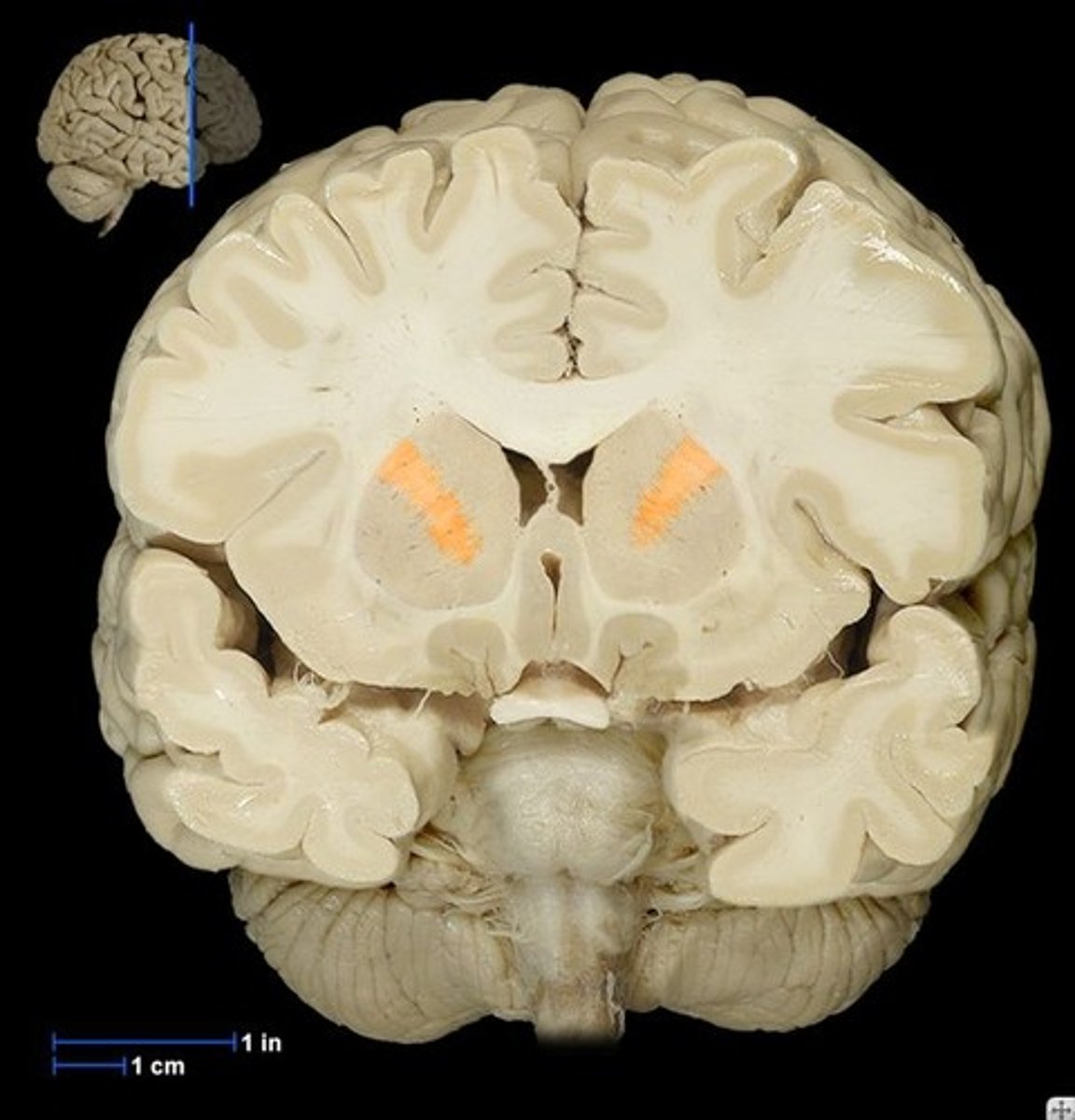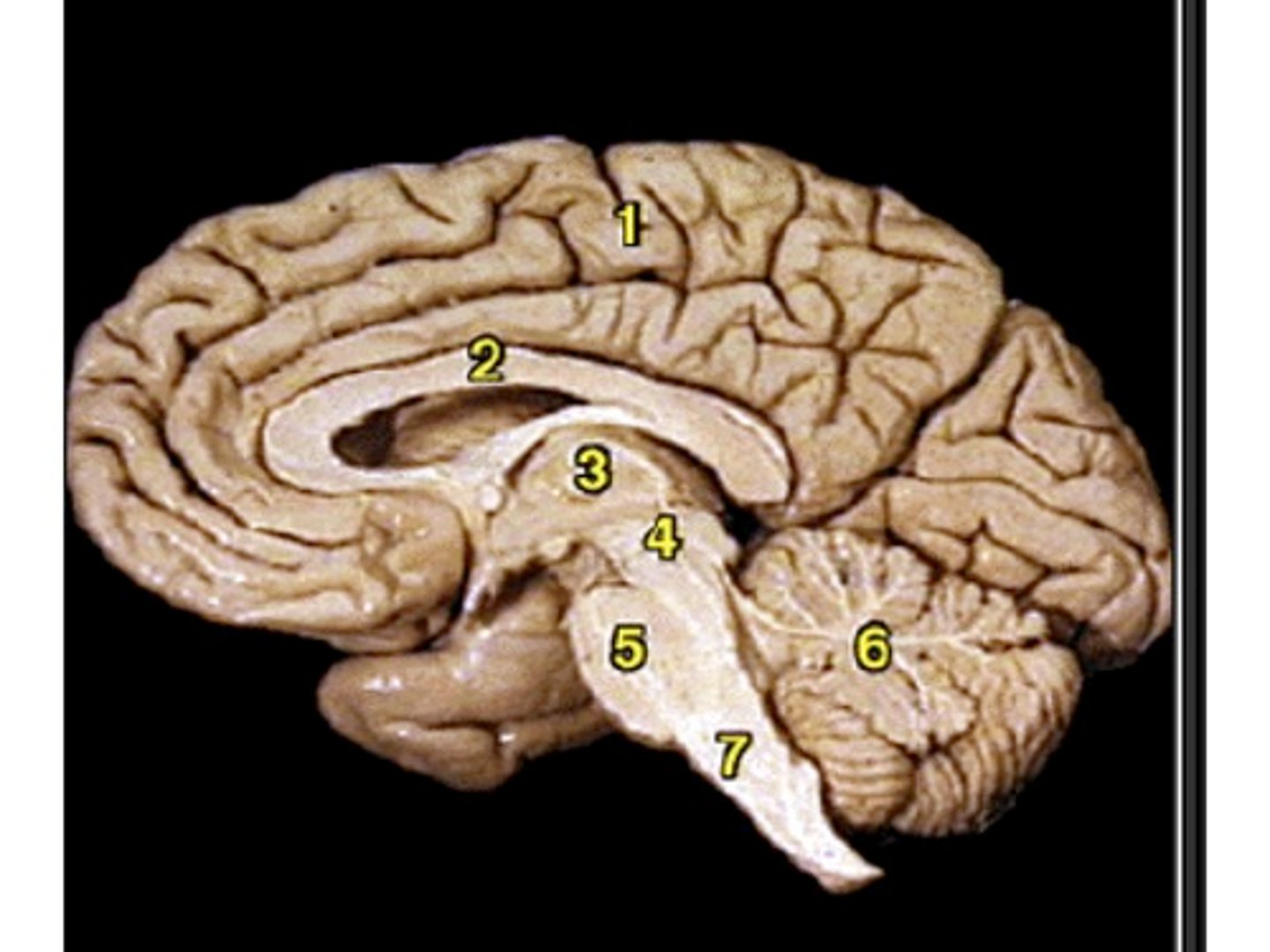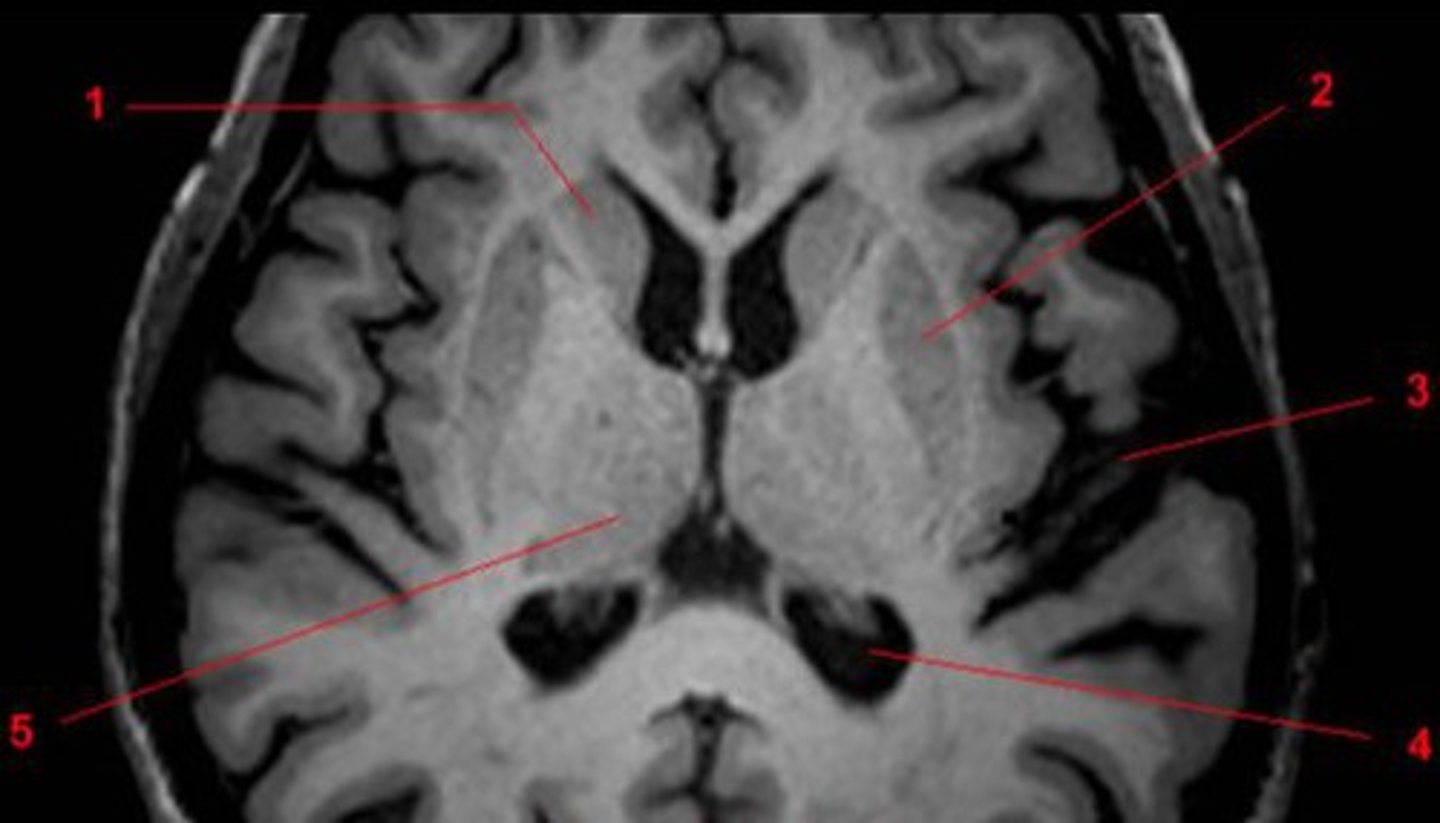Intro Psych Exam 1 (Firestone JHU)
1/110
There's no tags or description
Looks like no tags are added yet.
Name | Mastery | Learn | Test | Matching | Spaced |
|---|
No study sessions yet.
111 Terms
What is psychology?
Scientific study of the mind
Dualism
Belief that bodies are material and minds are immaterial (this is false)
What disproves the Dualism (3)?
1. Drugs that alter our brains also alter our minds
2. Injuries to our brains alters our minds
3. The more complex an animal's brain is, the more complex its mind is
Who is Phineas Gage? Why is he significant?
Man who survived after a railroad spike went through his skull. His changes in personality showed that our brain is connected to our mind. Also showed the plasticity of the brain since his changes faded over time.
Phrenology
Defunct theory that specific mental abilities and characteristics, ranging from memory to the capacity for happiness, are localized in specific regions of the brain (coined by Francis Gall)
How is the brain organized? How do we know this?
The brain is divided modularly-specific regions perform specific functions, often lateralized. We know this because deficits are selective and specific to the type of brain injury e.g. damage to occipital lobe leads to vision problems but not hearing problems
Coronal View

Sagittal View

Horizontal or Axial View

How do we learn about the brain (invasive)? (4)
1. Through accidents that lead to brain damage and thus deficits (nature's experiment)
2. Through diseases or illnesses e.g. stroke, encephalitis
3. Surgery e.g. lobotomies, epilepsy
4. Non-human animal studies e.g. critical vision cats, Lashley's rats (cut out part of brain, can still run maze regardless of which part)
What are noninvasive ways of learning about the brain?
fMRI: measures BOLD (what part of brain is using more oxygen). The idea is that if that part is necessary it uses more oxygen to do its job but this doesn't actually measure what the brain is doing it only implies it
What matters for neuronal firing?
The sum and pattern of all the action potentials
Grand Theory of the Mind
Theory Sigmund Freud made to explain everything
Psychoanalysis
Freud's world view and approach
Three Main Interesting Ideas of Freud
1. Unconscious reasoning explains most of our behavior
2. We're often wrong about our own motives
3. Can study unconscious mind thru subtle things
Stages of Development according to Freud
Oral, anal, phallic, latency, and genital
Oral Stage of Development
(0-1) pleasure centers on mouth; if stuck here orality, neediness, addictive personality
Anal Stage of Development
(1-3) Pleasure centers on controlling bowels; if stuck here oral, compulsive, stingy
Phallic Stage of Development
(3-5) Pleasure centers on genitals, need for domination; only way to escape this stage is to have an Oedipus complex
Latency Stage of Development
(6-puberty) dormant sexual feelings; can't get stuck here
Genital Stage of Development
(puberty on) Conscious version of phallic stage
Parts of Mind According to Freud
Id, Ego, Superego
Id
Instinctual, basic human desires; subconscious and unsophisticated
Ego
"Planner" on how to get those basic human desires or whether to get them; conscious and sophisticated
Superego
Internalized societal rules, tells us what to do; unconscious and unsophisticated
Mental Processes (Freud)
Projection, regression, and repression
Projection (Freud)
Disguising own unacceptable desires by attributing them to someone else
Regression
Falling back on an earlier, easier stage
Repression
Pushing unacceptable thoughts into subconscious
Criticisms of Freud (4)
1. No data/experiments
2. Vague
3. Perfectly circular
4. Favors complex explanation over the simple one
Behaviorism
Anti-mentalistic and scientific method of approaching psychology
Three Basic Principles of Behaviorism
1. Rejected internal mental states in favor of what is observable
2. Emphasis on learning-everything that makes us what we are is a result of learning (nurture)
3. There are minimal differences among species
Learning Principles of Behaviorism
1. Habituation: the more exposure, the less of a response
2. Classic Conditioning: learning to associate two unrelated stimuli e.g. Pavlov's dogs
3. Operative Conditioning: learning to associate an action w/ a consequence e.g. Thorndike's puzzle box
Reinforcement Types
Positive, negative, and punishment
Positive Reinforcement
Rewarding a behavior to increase the likelihood of that behavior occurring again e.g. giving a dog a treat for sitting on command
Negative Reinforcement
Encouraging a behavior by removing a negative stimulus e.g. removing a collar when a dog stays in the yard
Punishment
Giving punishment to decrease likelihood that behavior occurs e.g. yelling at dog for peeing on the floor
Pavlov's dogs
Experiment using classical conditioning that trained dogs to associate feeding time with a bell so they would drool at the sound of the bell (even w/o food present)
Little Albert's Experiment
Experiment where newborn was shown frightening animals but the infant did not react with fear. Used to show that fear is learned and we are born a "blank slate"
Thorndike's Puzzle Box
Box that cat must escape by manipulating levers. Postulated that the first escape is by chance. The consequence (escaping) changes the behavior of the cat (it hits the lever to escape again)-->Law of Effect
Criticisms of Behaviorism (3)
1. Rejects internal mental states but we have internal mental states; assumes that unobservable phenomena are not scientific
2. Says that everything is learned by chance but animals can learn things on their own and not by chance
3. Fails to explain all human behavior e.g. talking to oneself, making art
What is language?
Language is not...
Communication: we can communicate nonverbally or with math
Thought: we can portray the same thought in multiple languages
Speech: Parrots can produce speech but not language
System that allows for thought transfer
Languages have what 5 qualities/traits?
Rules, arbitrariness, displacement, creativity, and infinity
Arbitrariness of Language
A word does not necessarily have to have a connection to what it refers to
Displacement
Can refer to stuff that isn't there
Creativity
Allows us to produce and understand new sentences (productive)
Infinity
Allows to produce an infinite number of sentences (productive)
Phoneme
Smallest unit of sound that distinguishes one word from another (don't have meaning alone)
Morphology
(Phonological words) learned combinations of sound that compromise meaningful unit of a language (~word) e.g. face (1 morpheme), faces (2 morphemes)
McGurk Effect
Potential error in perception that occurs when we misperceive sounds because the audio and visual parts of the speech are mismatched; vision affects how we hear things
Syntax
Knowledge of how words can be combined and ordered to express meaning (~grammar)
How do we know language is innate? (8)
1. Every culture has it
2. Almost everyone has it (bar exceptions)
3. Irresistible-can't stop understanding it
4. Dissociations-Broca & Wernicke
5. FOXP2 Gene-mutations lead to language deficits
6. William's syndrome-Deficits in many areas except for language
7. Creolization-within 1 generation, children of parents who speak pidgin create a language
8. Don't need a teacher to learn it
Is language unique to humans?
Yes as far as we know; Nim the chimp was raised as a human child and failed to develop language
What are the two paradoxes of perception?
1. Perception is the most familiar mental process yet it is not understood well
2. There is too much info for us to process but there is also not enough info for us to determine what's out there
What systems do we use to perceive the world?
Somatosensation, vision, auditory, gustatory, and olfactory
Nociceptors
Pain receptors
Thermosensation
Temperature changes
Proprioceptors
Position of body parts
What are the Three Truths about Vision?
1. Vision is impossible
2. Vision is hard
3. Vision makes assumptions
Vision is Impossible
Inverse problem: the world is in 3D but our retina is 2D so any image could represent multiple realities
Vision is Hard
Instinct blindness: it's easy to do so we assume the process must also be simple but this is false
Vision makes Assumptions
Unconscious Inferences: our brains make inferences using top down knowledge and context to find the most probabilistic scenario e.g. discounting the illuminant (what color is the dress)
How do we see in 3D?
Cues to size and depth; linear perspective, occlusion, motion parallax
Linear Perspective
Parallel lines appear to converge at a distance
Motion Parallax
Things further away appear to move less than things that are closer
Occlusion
Stuff on top is closer than the stuff it covers
How do we cope with too much information (visually)?
We use attention to choose what to focus on and process (gateway to awareness)
Magnification (Vision)
More receptors in the fovea leading to higher resolution in central vision
Sensation
Stimulation of sense organs by the world
Perception
Aggregation of sense stimuli to create a coherent picture of the world
Limited Capacity of Attention
Can only attend to so many stimuli at one time e.g. multiple object tracking
Attention
"Taking possession of the mind one out of many simultaneously possible objects or trains of thought...withdrawal from some things...to deal effectively with others"
Overt Attention
Attention that involves looking at the attended stimuli; eye movement
Covert Attention
Attention without looking; no eye movement
Door Study
Study where experimenter asks for directions and switches place with someone when door passes between them and the subject. ~50% subjects didn't notice change even when it was salient
Culture of West vs East
Westerners: individualistic, materialistic, analytical
Easterners: holistic, collectivist, context-focused
Language Tracking Experiment
Tracked types of words parents used with children in American and Chinese households. Found Americans used more nouns while Chinese used mostly verbs or events
Fish Moving from Group Study
Showed Americans and Chinese video of a fish moving away from a group of other fish and asked them to explain it. Americans usually mentioned individuality while the Chinese subj said it was because the other fish were mean
Change Blindness (Focal & Contextual)
Chinese participants better at noticing contextual (change in background of image) change than Americans
Facial Attractiveness
We have an innate preference for faces and we like average faces across all cultures according to experiment where attractiveness increased with the # of faces averaged together
Why do we like average faces?
Koinophilia: Evolutionary defense mechanism because common features are less likely to have mutations than distinct ones
Aesthetic Preference (color)
Explained by ecological valence theory: we like certain colors because the things we like are those colors
Muller-Lyer Illusion Carpentry Hypothesis
Idea that societies with carpentry feature 90 deg angles that condition people to see a stronger illusion; disproved
What did the congenital cataract patients show about the Muller-Lyer illusion?
Showed that the illusion is not a result of carpentry since patients were blind and were susceptible to illusion thus could not have been conditioned culture; Showed limitations of culture's influence
Sapir-Whorf Hypothesis
Language shapes our thought and perception
Eskimo Words for Snow
Thought there were different words for types of snow but this was false bc it didn't account for prefixes, suffixes, infixes, etc.
Russian Blues
Study that suggests language influences ability to distinguish shades of blue. Russians have different words for blue and performed better than others at differentiating between shades
How can types of memory be categorized?
By what the memories are about or time
Memory Types Relative to What
Semantic, episodic, procedural
Memory Types Relative to Time
Sensory (working), short term, and long term
Semantic Memory
Memory for facts, ideas, and concepts e.g. The capitol of Kansas is Topeka
Episodic Memory
Memory for personal experiences, events; first-person knowledge e.g. first birthday party
Procedural Memory
Memory for skills, tasks, habits e.g. riding bike
Sensory (Working Memory)
Iconic-visual, Echoic-auditory; Large capacity but decays quickly
Short Term Memory
Memory maintained by repetition, limited
Digit Span Task
Task where subj must remember series of digits avg: 7
Chunking
Combining small pieces of info into meaningful chunks
Primacy and Recency
Better at remembering the beginning and end stimuli during memory task
Long Term Memory
Capacity unlimited?
Steps for Remembering
Encoding-->Storage-->Retrieval